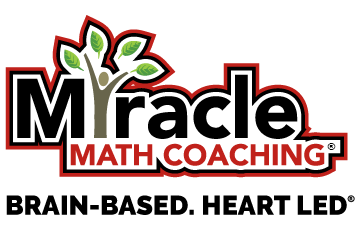Math Tutoring Services for Children with Learning Disabilities (Part 3)
Thank you for continuing to follow our series, “Math Tutoring Services for Children with Learning Disabilities”. This week, we continue with the third installment of this topic. In Part 1 and Part 2, you were informed of the fact that math deficits are actually quite common among kids – especially those that have been diagnosed with a learning disability. You also learned that the ability to retain information regarding basic number facts is one of the main issues that keep a child from progressing, academically, in mathematics. Tutoring services, as explained in our previous installments, provide numerous benefits to a child suffering with math deficits. This week, we will expound on basic computational/mathematics weaknesses and how math tutoring services may help students with this problem.
Computational Weaknesses
Many students that have learning disabilities have an absolute wonderful grasp of the basic number facts that we discussed in last week’s blog; however, they experience computational or calculating weaknesses in mathematics. Many of these students will simply overlook the operational sign in a math problem, will not perform operations appropriately, and are unable to successfully sequence steps that are needed to complete complex levels of mathematical operations. You must know and understand that kids that have learning disabilities in math are often quite capable of completing the problems, but may experience deficiencies in calculations and computations. Math is not just a subject about “right” answers. It is a delicate balance of critical thinking skills, problem-solving skills, attention, and computations.
How a Tutor Will Help Strengthen Computational Weaknesses
According to statistics, computational weaknesses are among the most common type of academic-based weakness in students that suffer from a learning disability. When a tutor works with a struggling math student, they will evaluate and assess their individual needs. In most instances, a written test is given. In some instances, the evaluation may be given digitally, or, a tutor may simply meet face-to-face with the student to determine if they have a weakness in basic computations. If the tutor discovers that this is the weakness that is resulting in math deficits, they are likely to engage in the following steps:
- First, they will inform the parent or guardian of the child where the kid’s strengths lie and that their weakness is computational. They will then explain what that means so that everyone has a solid understanding of the issue at hand.
- Next, there will be a consistent effort made to strengthen the computational weakness.
- Finally, math as a whole will be taught while the child is encouraged to monitor their own progress.
Many families that have kids with learning disabilities feel that their struggle is unique and that they are alone. The truth of the matter is, though, there are many types of math tutoring services that cater to children that have complications understanding basic number facts and/or have computational weaknesses. If you feel that your family requires this type of service, simply click HERE for more information.







